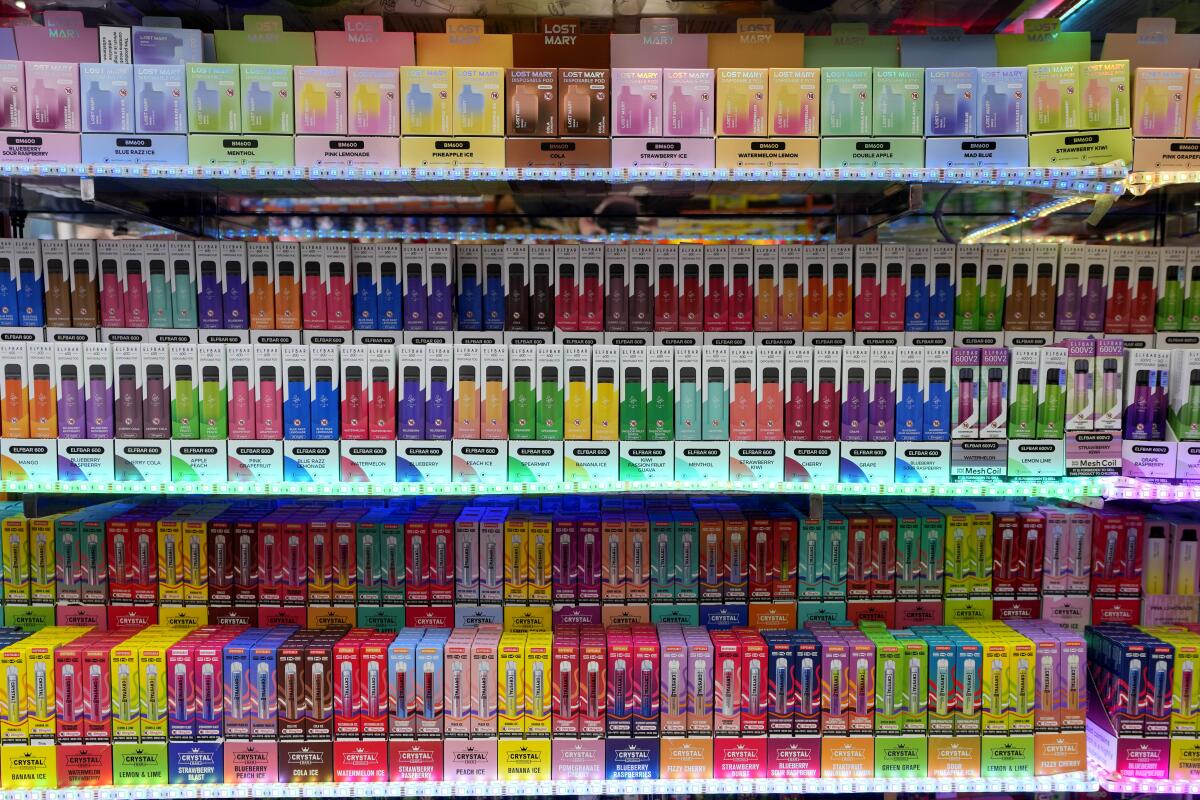Major tobacco companies like Philip Morris International (PMI) (PM.N) and British American Tobacco (BATS.L) are increasingly focusing on new nicotine products, but investors and analysts warn that stringent regulations akin to those for cigarettes could pose significant risks.
The World Health Organization (WHO) recently called for governments to subject vaping devices to tobacco-style controls, citing concerns that these products are attracting new users to nicotine addiction.
This recommendation could spell trouble for tobacco giants investing in alternatives to traditional cigarettes, as tighter restrictions and heightened awareness of health risks threaten to squeeze their existing cigarette businesses.
PMI, the world’s largest tobacco company by market value, has been at the forefront of shifting towards smoke-free alternatives, significantly boosting its price-earnings ratio compared to competitors.
However, Pieter Fourie, manager of Sanlam’s Global High Quality Fund, which holds tobacco stocks, cautioned that PMI stands to lose its valuation advantage if stricter regulations are imposed broadly on nicotine products.
“Maybe that advantage doesn’t remain,” Fourie remarked, highlighting potential implications for PMI’s market position.
On the other hand, companies like Imperial Brands (IMB.L) may see a lesser impact on their investment case due to their reduced focus on new nicotine products after several sales setbacks and declining market share in cigarettes.
Despite the regulatory challenges, British American Tobacco (BATS.L) continues to heavily invest in alternatives such as vaping and oral nicotine, aiming for 50% of its revenues from these sources by 2035.
PMI has set a target of two-thirds of its net revenues from “smoke-free” products by 2030, with a significant portion of its $10.5 billion investment in smoke-free products directed towards heated tobacco devices that heat tobacco without burning it, aiming to reduce harmful chemicals.

The WHO’s recommendations on vaping come ahead of a critical biennial conference next year for 183 governments party to a global tobacco control treaty.
While the treaty does not grant the WHO authority over national nicotine regulations, its guidelines influence global policy discussions.
However, the consensus-based nature of the treaty means that governments adopt new rules on nicotine alternatives at varying speeds, reflecting diverse national perspectives.
“Some nations like the United Kingdom have embraced vapes as part of efforts to reduce smoking-related harm, while others like India have banned vapes and heated tobacco products entirely,” noted Brett Cooper from Consumer Edge.
This diversity in regulatory approaches makes swift global shifts in nicotine product regulations unlikely, despite increasing calls for stricter controls.
Nevertheless, heightened regulations could disadvantage tobacco companies compared to the current regulatory environment, limiting their ability to advocate for more favorable policies globally.
Chris Beckett from Quilter Cheviot and Steve Clayton from Hargreaves Lansdown, both investors in tobacco, suggested that stricter enforcement could inadvertently benefit major tobacco firms by raising entry barriers and reducing competition from smaller, less compliant players.
“Translate a similar sort of environment from combustible cigarettes to vaping and heated tobacco, and you end up with incumbent Big Tobacco having very large market shares and a very profitable business,” Beckett concluded, emphasizing the potential for a regulated market to consolidate advantages for established tobacco companies.
Despite the challenges and regulatory uncertainties, analysts agree that consumer demand for nicotine products remains robust.
“Unless you actually make nicotine a banned substance, then these companies have a future market opportunity,” added Clayton, underscoring the enduring market potential for nicotine products amid evolving regulatory landscapes worldwide.
